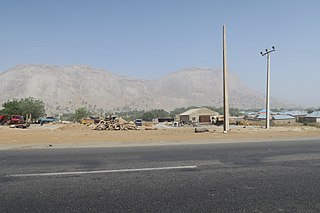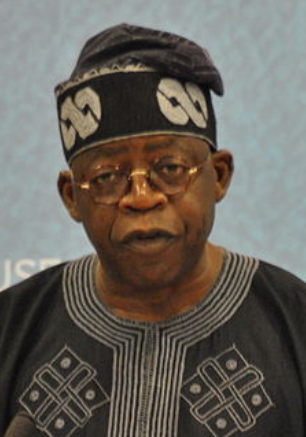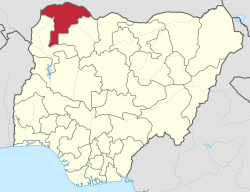Shehu Usman dan Fodio. was a Fulani scholar, Islamic religious teacher, poet, revolutionary and a philosopher who founded the Sokoto Caliphate and ruled as its first caliph.

Sokoto is a major city located in extreme north-western Nigeria, near the confluence of the Sokoto River and the Rima River. As of 2006, it has a population of over 427,760. Sokoto is the modern-day capital of Sokoto State and was previously the capital of the north-western l states. Modern Sokoto is known for trading sheepskins, cattle hides, leather crafts, kola nuts and goatskins.

Shehu Usman Aliyu Shagari was a Nigerian politician who was the first democratically elected president of Nigeria, after the transfer of power by military head of state General Olusegun Obasanjo in 1979, which gave rise to the Second Nigerian Republic.
Kebbe is a Local Government Area in Sokoto State, Nigeria. Its headquarters are in the town of Kebbe. The LGA shares a border with Zamfara State in the east and Kebbi State in the south and west.

Katsina is a state in the northwestern geopolitical zone of Nigeria. Katsina State borders the Republic of Niger to the north for 250 km and the States of Jigawa for 164 km and Kano to the east, Kaduna to the south for 161 km and Zamfara to the west. States. Nicknamed the "Home of Hospitality", both the state capital and the town of Daura have been described as "ancient seats of Islamic culture and learning" in Nigeria.

Kebbi is a state in northwestern Nigeria. Kebbi State is bordered east and north of Sokoto and Zamfara states, and to the south by Niger state while its western border forms part of the national borders with Benin Republic for 103 km and Niger for 207 km. Named for the city of Birnin Kebbi—the state's capital and largest city, Kebbi state was formed from Sokoto state on 27 August 1991. Of the 36 states of Nigeria, Kebbi is the tenth largest in area and 18th most populous, with an estimated population of about 4.4 million as of 2016. The state is known as land of equity.

Zamfara is a state in northwestern Nigeria. The capital of Zamfara state is Gusau and its current governor is Dauda Lawal. Until 1996, the area was part of Sokoto State.
Articles related to Nigeria include:

The Nigerian National Assembly delegation from Sokoto comprises three Senators representing Sokoto North, Sokoto East, and Sokoto West, and eleven Representatives representing Sokoto North/Sokoto South, Binji/Silame, Wurno/Rabah, Isa-Sabon-Birni, Gwadaba/Illiza, Kware/Wamakko, Gudu/Tangaza, Kebbe/Tambuwal, Gorondo/Gada, Bodinga/Dange-Shuni/Tureta, and Shagari/Yabo.
Shinkafi is a Local Government Area in Zamfara State of Nigeria. Its headquarters is in the town of Shinkafi an area of about 674mk2 and population of 135,649. It shares boundaries with Isa Local Government Area and Niger Republic from the north, Zurmi Local Government Area to the South and South-East, Maradun Local Government Area and Raba Local Government Area by the west. Distance from the State Capital, Gusau is approximately 116 km.
Kware is a Local Government Area in Sokoto State, Nigeria. Its headquarters are in the town of Kware on the A1 highway.
Yabo is a Local Government Area in Sokoto State, Nigeria. Its headquarters is in the town of Yabo, and Yabo Local Government is one of the oldest local governments in Sokoto. Since Sokoto, Kebbi and Zamfara are known as Sokoto, so also Yabo, Tambuwal and Shagari are together included in the Yabo Local Government Area.
Shagari is a Local Government Area in Sokoto State, Nigeria. Its headquarters are in the town of Shagari on the A1 highway. The local government area (LGA) shares a border with Zamfara State in the south.
Abdullahi Balarabe Salame is a Nigerian politician from Salame, Gwadabawa Local government, Sokoto State, Nigeria. He is a member of parliament for Gwadabawa and Illela constituency, at Federal House of Representatives under a platform of All Progressive Congress (APC) and is a chairman house committee on poverty alleviation. He was a speaker of Sokoto State house of assembly from 2007 to 2011 who represented Gwadabawa East, and also served as acting governor of the state from 11 April to 28 May 2008.

Abdussamad Dasuki is a Nigerian politician, economist and businessman. He served as the Commissioner of Finance in Sokoto State Government from 2019 to 2023 and served in the Nigerian House of Representatives between 2015 and 2019, representing Kebbe/Tambuwal Federal Constituency of Sokoto State. He is a member of the Peoples Democratic Party (PDP).
The 2023 Sokoto State gubernatorial election was held on 18 March 2023, to elect the Governor of Sokoto State, concurrent with elections to the Sokoto State House of Assembly as well as twenty-seven other gubernatorial elections and elections to all other state houses of assembly. The election — which was postponed from its original 11 March date — was held three weeks after the presidential election and National Assembly elections. Incumbent PDP Governor Aminu Waziri Tambuwal was term-limited and could not seek re-election to a third term. Former Deputy Governor Ahmad Aliyu gained the office for the APC by a margin of ~6% over the PDP nominee — former Secretary to the State Government Saidu Umar.
The 2019 Sokoto State House of Assembly election was held on March 9, 2019, to elect members of the Sokoto State House of Assembly in Nigeria. All the 30 seats were up for election in the Sokoto State House of Assembly.

The 2023 Nigerian presidential election in Sokoto State will be held on 25 February 2023 as part of the nationwide 2023 Nigerian presidential election to elect the president and vice president of Nigeria. Other federal elections, including elections to the House of Representatives and the Senate, will also be held on the same date while state elections will be held two weeks afterward on 11 March.

The 2023 Nigerian Senate elections in Sokoto State will be held on 25 February 2023, to elect the 3 federal Senators from Sokoto State, one from each of the state's three senatorial districts. The elections will coincide with the 2023 presidential election, as well as other elections to the Senate and elections to the House of Representatives; with state elections being held two weeks later. Primaries were held between 4 April and 9 June 2022.














